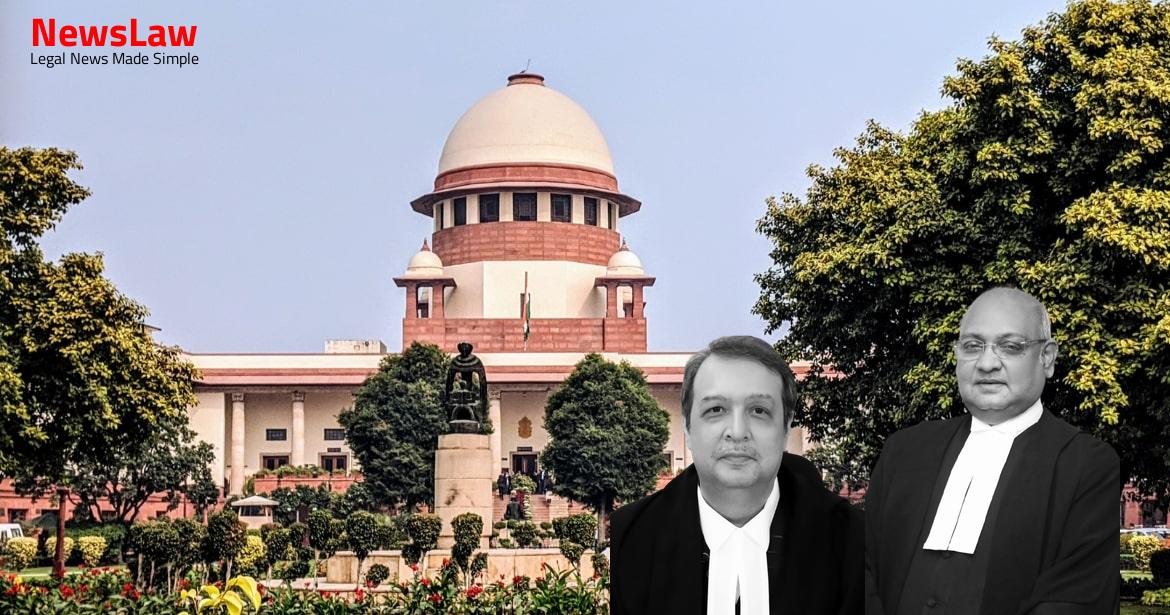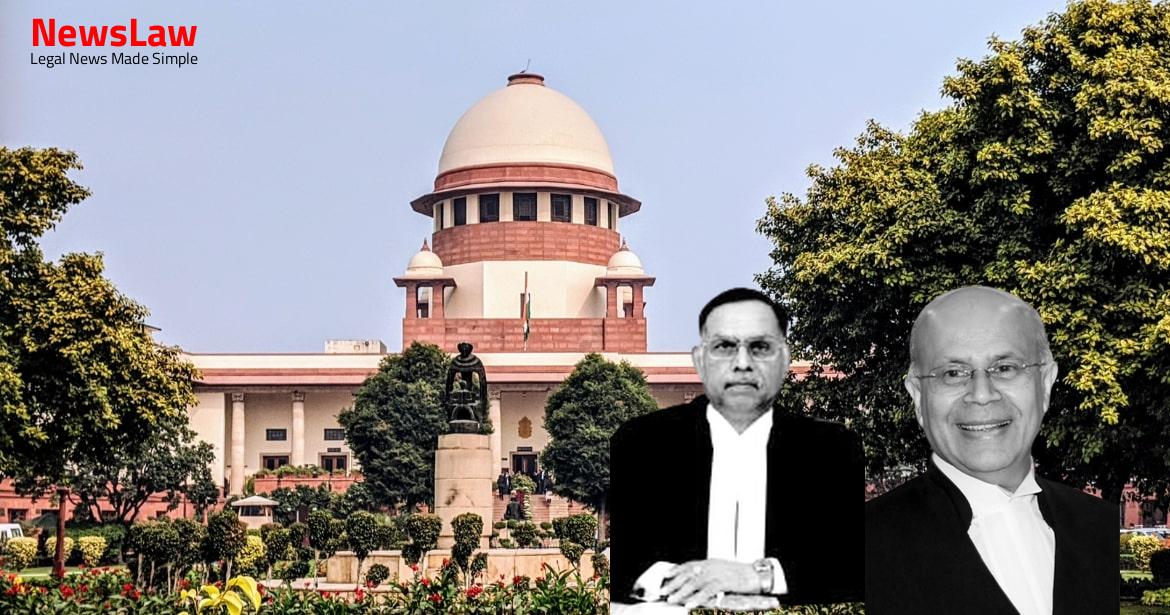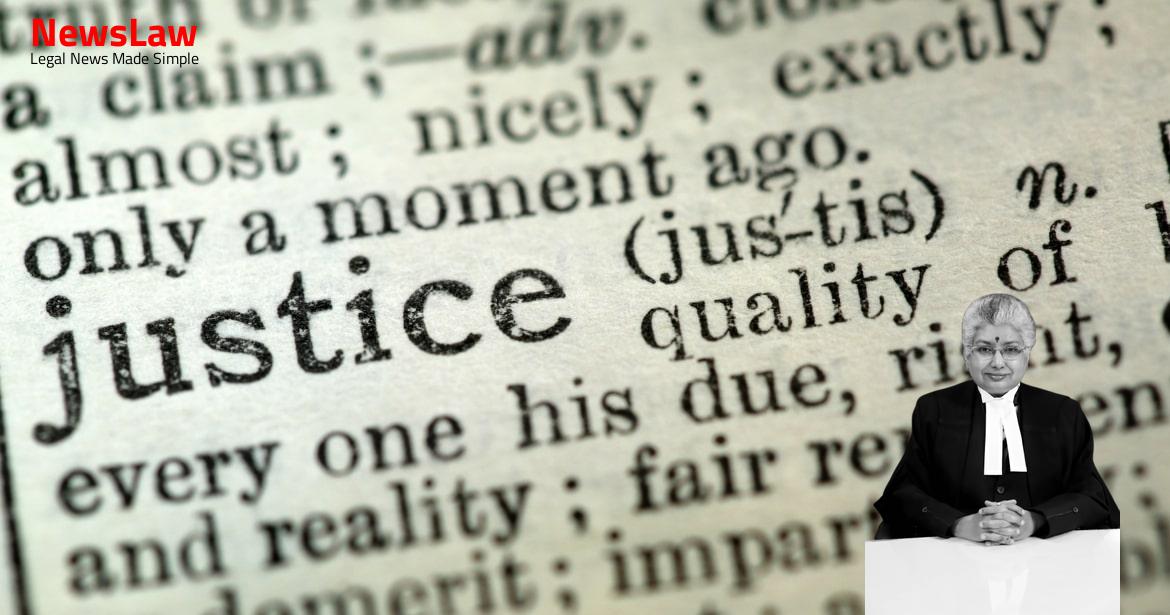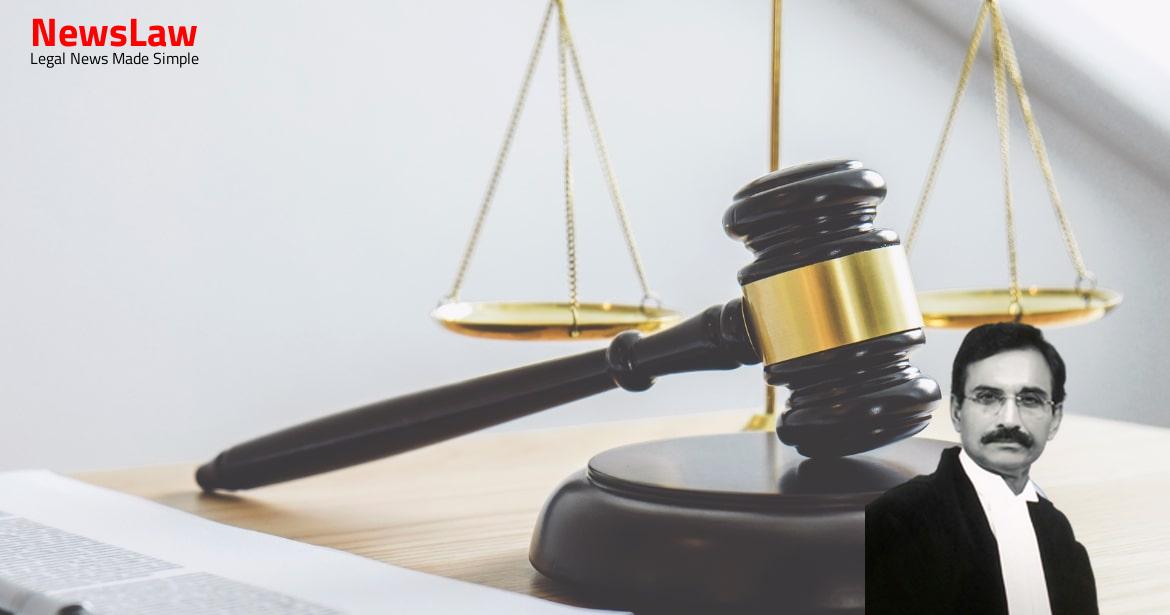The recent legal case delves into the crucial role of the High Court in ensuring fair and just investigations. The judgment highlights the significance of preventing the wrongful arraignment of innocent individuals through proper legal analysis. Emphasizing on the importance of upholding justice, the court’s decision showcases the application of legal principles to secure the ends of justice. Follow along to understand how legal analyses in cases can pave the way for a more just legal system.
Facts
- The petitioner, a Class IV employee, was wrongfully posted as Incharge Assistant Godown Manager by the then District Manager, D.N. Singh.
- The petitioner has been made accused 3 in the case as a scapegoat to protect D.N. Singh, the District Manager.
- The High Court directed further investigation regarding the role of D.N. Singh in the misappropriation of funds mentioned in the audit report.
- The High Court expressed surprise that the District Manager, the main culprit, was not accused in the case and the petitioner, a Class IV employee, was made the scapegoat.
- The High Court didn’t interfere with the cognizance taken against the petitioner but directed re-investigation against D.N. Singh.
Also Read: Legal Authority and Res Judicata in Representation Matter
Arguments
- Learned counsel for the appellant argued that the High Court, while exercising its powers under Section 482 CrPC, could not have issued a specific direction to the Magistrate to direct the police to investigate the role of the appellant, who was neither named in the FIR nor charge-sheeted and was not a party before the High Court.
- The investigation initiated against the appellant has been transferred to the Economic Offences Unit.
- Allegations against the appellant have been found to be prima facie correct.
- Further action was deferred due to a stay order from the Court.
- The doubts expressed by the High Court regarding the appellant have been verified during the investigation.
- In the departmental proceedings, charges were not proven against the appellant, as per respondent No. 2.
- Petitioner failed to address irregularities despite knowledge and did not take corrective action.
- Responsibility of the District Manager included lifting, storing, and proper distribution of food grains.
Also Read: Analysis of Conviction Based on Circumstantial Evidence
Analysis
- The judgment discusses the application of the rule of audi alteram partem in cases where it could lead to injustice.
- It explains the circumstances under which the inherent jurisdiction may be exercised by the High Court.
- The analysis emphasizes that the power of investigation is exclusively reserved for the police officers and must be conducted in compliance with the provisions of the Criminal Procedure Code.
- The judgment highlights the importance of ensuring a fair and just investigation to prevent the wrongful arraignment of innocent individuals.
- It points out that the High Court can order further investigation in exceptional cases to secure the ends of justice.
- Every investigation under this Chapter must be completed promptly.
- Investigating agencies may conduct further investigation even after filing a charge-sheet under Section 173 CrPC.
- Limitations on further investigation in Section 173(8) do not apply to the inherent powers of the High Court under Section 482 CrPC.
- Proceedings of a police officer cannot be questioned on the grounds of empowerment to investigate.
- Magistrates empowered under Section 190 can order investigations.
- The officer in charge of the police station must forward a report to the Magistrate upon completion of the investigation.
- Section 190 allows Magistrates to take cognizance of offenses based on various criteria.
- Inherent powers of the High Court under Section 482 CrPC are crucial for ensuring proper investigation.
- Officers in charge of police stations are empowered to investigate cognizable cases without Magistrate orders.
- Section 173 and Section 156 outline the powers and responsibilities of police officers in investigating cases.
- The High Court directed further investigation by the CB, CID into the matter after considering the advice of the Public Prosecutor on the appropriate charges for the accused.
- The court discussed the importance of fair and proper investigation in criminal jurisprudence to ensure justice.
- The power of higher courts to direct fresh, de novo, or reinvestigation, as well as transfer of investigations between agencies, was highlighted.
- The distinction between reinvestigation and further investigation was explained, and the need for unbiased, honest, and lawful investigation was emphasized.
- The doctrine of contemporanea expositio was mentioned to support the interpretation of longstanding practices as part of the legal process.
- The case of State of Punjab v. CBI was cited to illustrate how the High Court can exercise inherent powers for substantive and procedural matters during appeals or revisions.
- Submissions on behalf of the State noted without pronouncing on merits
- Leaving all aspects open for examination by investigating agency, sanctioning authority, and the Court
- No just and strong reason to restore the matter for reconsideration of the High Court
- Allowing investigation to be taken to its logical end
- Effacing unwarranted and unnecessary observations of the High Court
- Dismissing the appeal with the above observations
Also Read: Challenging the Maintainability of Public Interest Litigations: A Court’s Legal Analysis
Decision
- The context is left open for examination by the investigating agency
- The context is left open for examination by the sanctioning authority
- The context is left open for examination by the Court concerned
- Examination should be done at the relevant stage
- Examination should be done in accordance with the law
Case Title: DEVENDRA NATH SINGH Vs. THE STATE OF BIHAR (2022 INSC 1071)
Case Number: Crl.A. No.-001768-001768 / 2022



